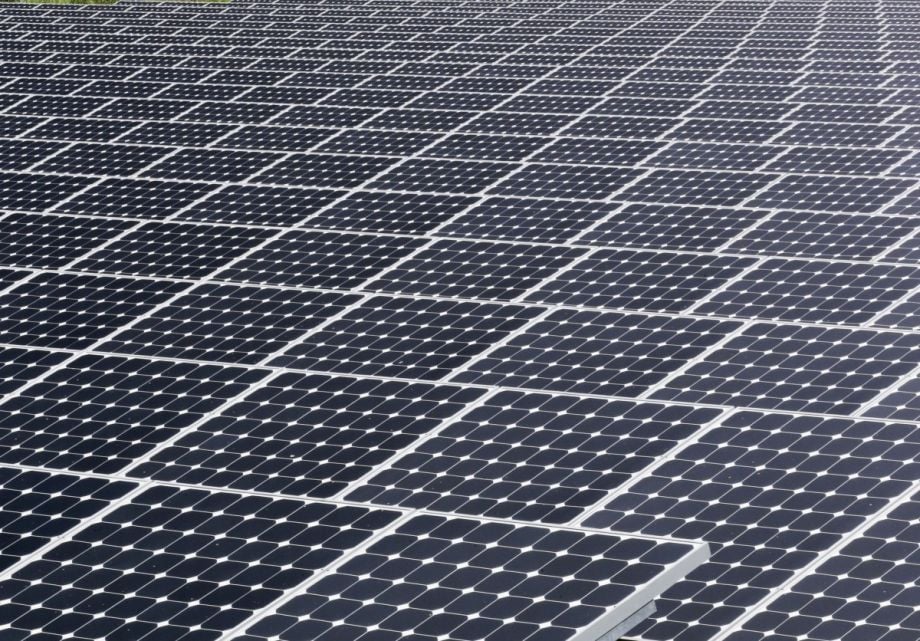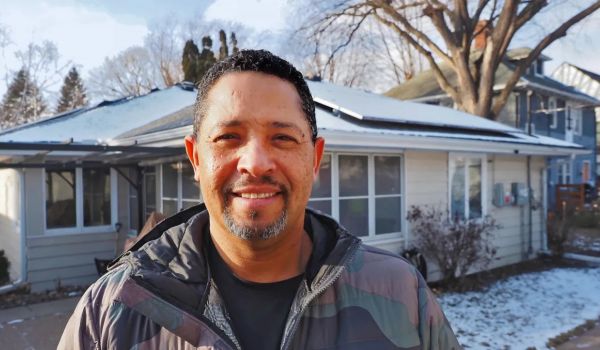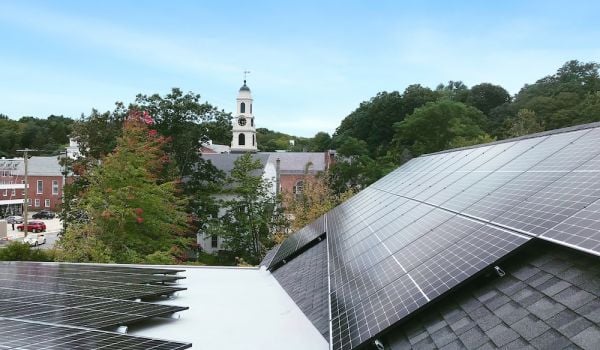Jamez Staples was 19 when someone told him if you put solar panels on your roof, the government would have to buy energy from you. It wasn’t true, but it sparked an interest. Once the latest recession set in, already an entrepreneur, he started looking into the solar industry as a source of new jobs for his community in north Minneapolis. The area is one of concentrated poverty; black residents make up 43 percent of the population. He had some back and forth with legislators, to no avail. Then came Minnesota’s passage of the Solar Jobs Act of 2013, projected to lead to a 30-fold increase in solar power generation by 2020.
“That’s when I decided to focus on installation,” Staples tells me over email. “I haven’t looked back.”
Staples founded Renewable Energy Partners (REP), a solar installation firm operating in north Minneapolis. REP’s business model focuses on creating jobs for economically disadvantaged people of color, while also educating communities of color on the benefits of renewable energy such as saving money and reducing carbon footprints.
Though the industry is newer, it’s already employing twice as many people as the coal industry in the U.S. Staples, through his firm as well as working with community partners, hopes that the new statewide requirement to increase solar power generation can be harnessed to close racial, education and economic disparities.
One of the partners working with Staples is Cooperative Energy Futures (CEF), an energy efficiency cooperative serving all of the Twin Cities area, based in south Minneapolis.
“I met Jamez probably about a year and a half ago at some of the meetings at the statewide level about the rules and regulations around community solar gardens,” says Timothy DenHerder-Thomas, general manager of CEF. “We got to talking and realized what we were doing was related and similar.”
Their meeting nicely coincided with the eventual community solar gardens provision built into the state’s legislation, which allows for groups of residents to collectively, purchase, install and reap the financial benefits of solar gardens.
“[Solar] gets people very excited, and people are really interested in the model, but on its own it’s really not that accessible for the majority of people because most people don’t own property and therefore can’t put it on their own roofs,” says DenHerder-Thomas. “Or don’t have enough financial means or credit to be able to access solar on their own.”
The community solar gardens provision allows groups like CEF to ensure broad consumer access to the benefits of solar, starting with the community around Shiloh Temple International Ministries in north Minneapolis, where they are now building their first community solar garden.
CEF plans to build even more community solar gardens throughout the Twin Cities region, hoping to use those installation opportunities to help chip away at the nation’s second-largest statewide unemployment disparity between black and white households.
“It’s something we’ve really thought about as a co-op all along, how do we use this as a way to create jobs in low-income communities and for people of color who were shut out of so much of the traditional construction trades and the energy industry of the past,” says DenHerder-Thomas. Moving forward, CEF solar installation contracts will require at least 50 percent of all work to be done by minorities.
The biggest obstacle, however, might be the issue of human resources: How will CEF be able to find enough installation and maintenance workers of color, particularly from low-income communities, to sustain an expanding operation? That’s where Staples’ role becomes central.
“The industry is just beginning to materialize,” says Staples. They’re starting small with the Shiloh Temple community solar garden, a crew of just five, all black. REP’s on-the-job training, says Staples, will be inclusive of safety and the basics of solar installation with an emphasis of NABCEP [North American Board of Certified Energy Practitioners] entry-level certification.
“This will be our first run at the recruiting and training, so we will learn how to best do those as we go,” says Staples. “I don’t look at low-income, communities of color, or marginalized groups as a negative challenge, but a positive opportunity to inspire and create a thriving community, breaking down the barriers to economic security, offering livable wage jobs and a chance to be a part of the environmental conversation.”
As they scale up, CEF will be working on a system to verify the racial equity requirement in their contracts. They also have other installation contractors who have expressed agreement to work within that mandate, on the assumption that there will be a growing stream of certified, experienced workers coming out of CEF’s initial partnership with REP. Eventually, Staples envisions, even government contracts for solar installation could require a certain level of minority, women or even military veteran participation.
“Installing solar is not like rocket science,” Staples adds. “Exceptional training, a good attitude, and the willingness to work hard will go a long way. Opportunities for people of color or from low-income communities will increase as the industry grows, but only if companies are willing to invest resources into recruiting from educationally disadvantaged pools of folks.”
The Equity Factor is made possible with the support of the Surdna Foundation.

Oscar is Next City's senior economic justice correspondent. He previously served as Next City’s editor from 2018-2019, and was a Next City Equitable Cities Fellow from 2015-2016. Since 2011, Oscar has covered community development finance, community banking, impact investing, economic development, housing and more for media outlets such as Shelterforce, B Magazine, Impact Alpha and Fast Company.
Follow Oscar .(JavaScript must be enabled to view this email address)

















